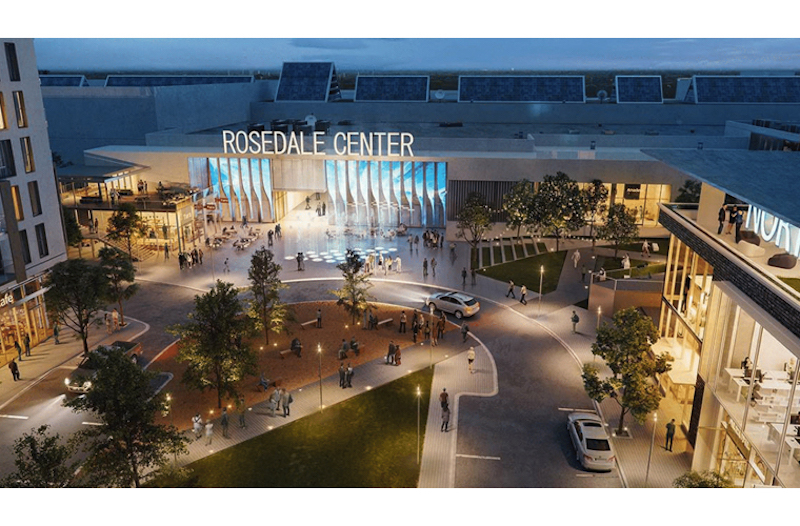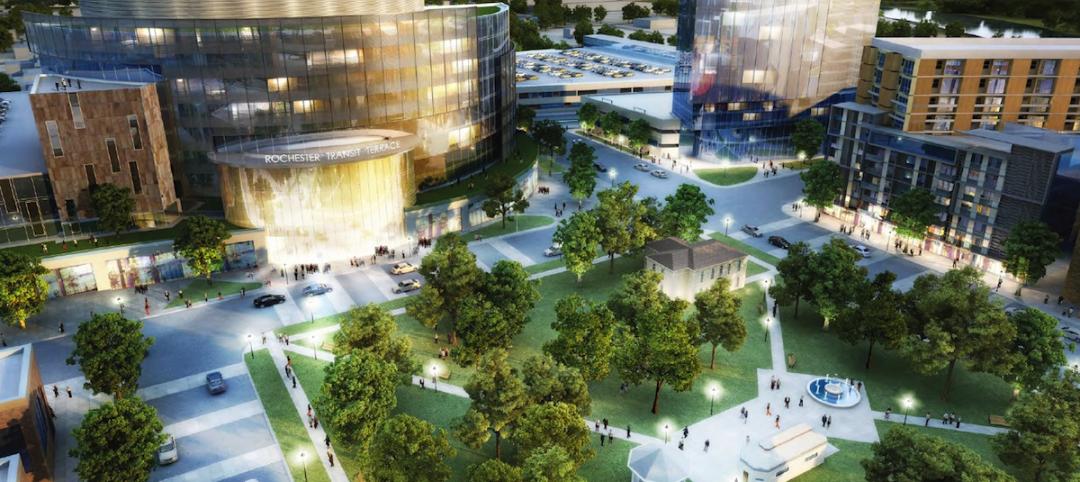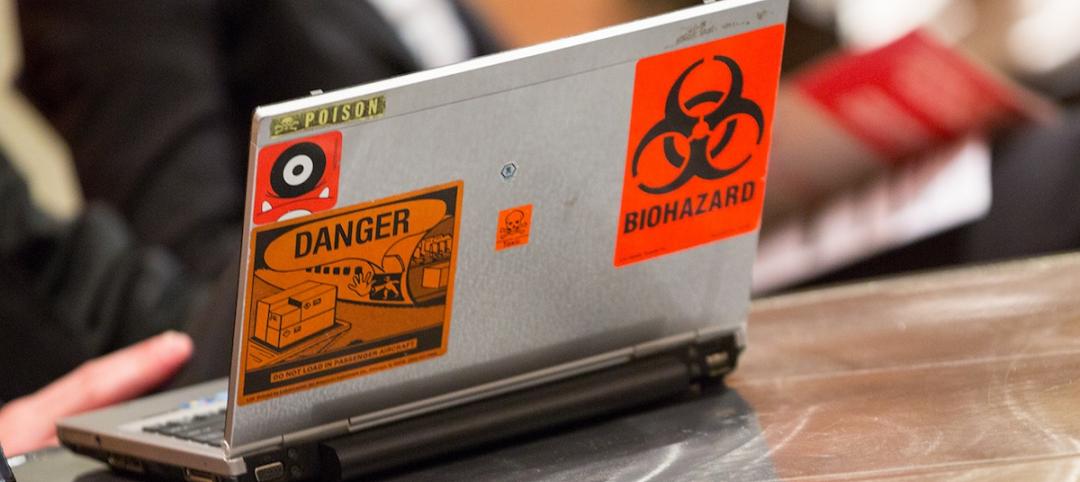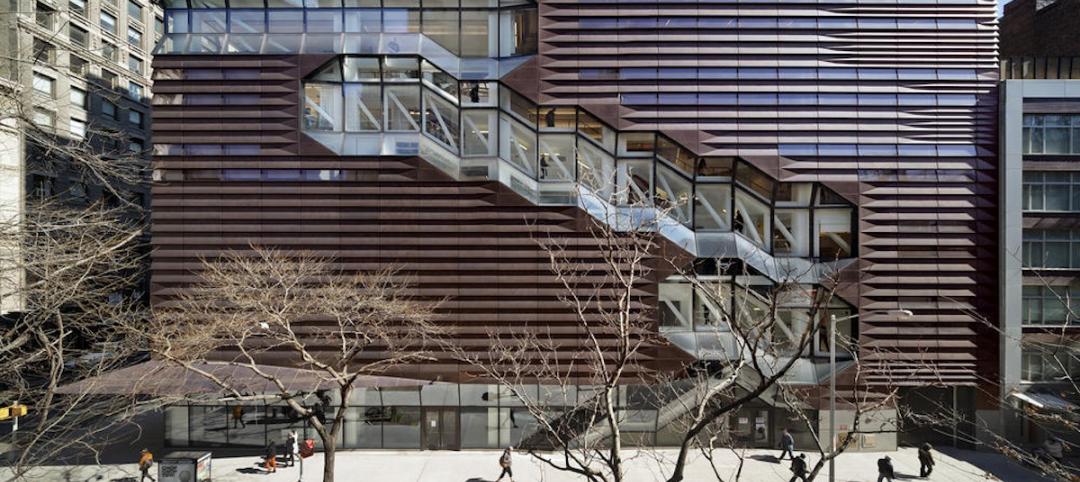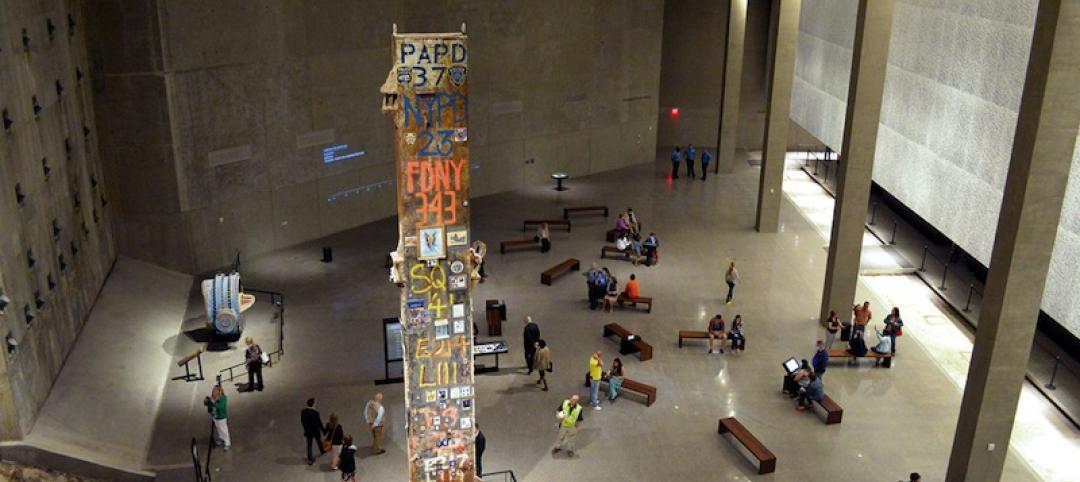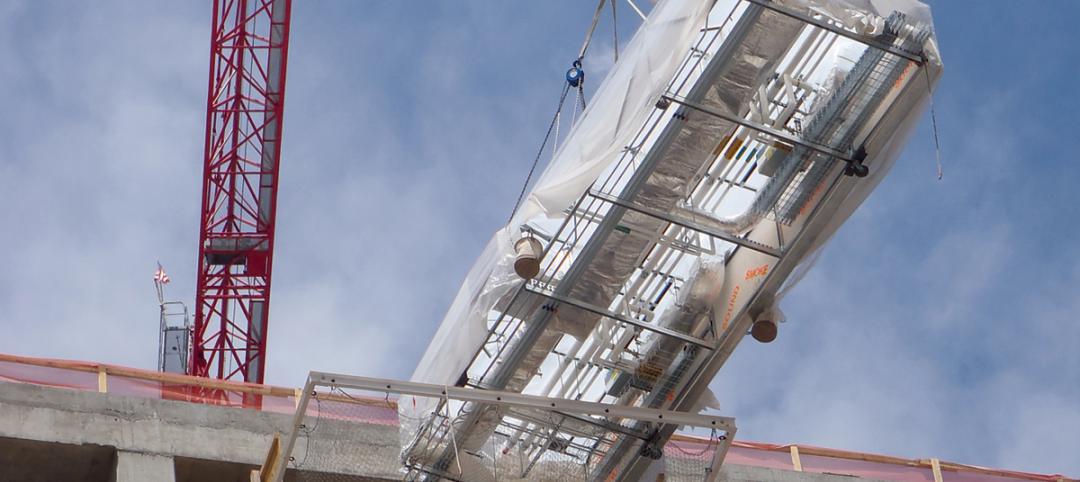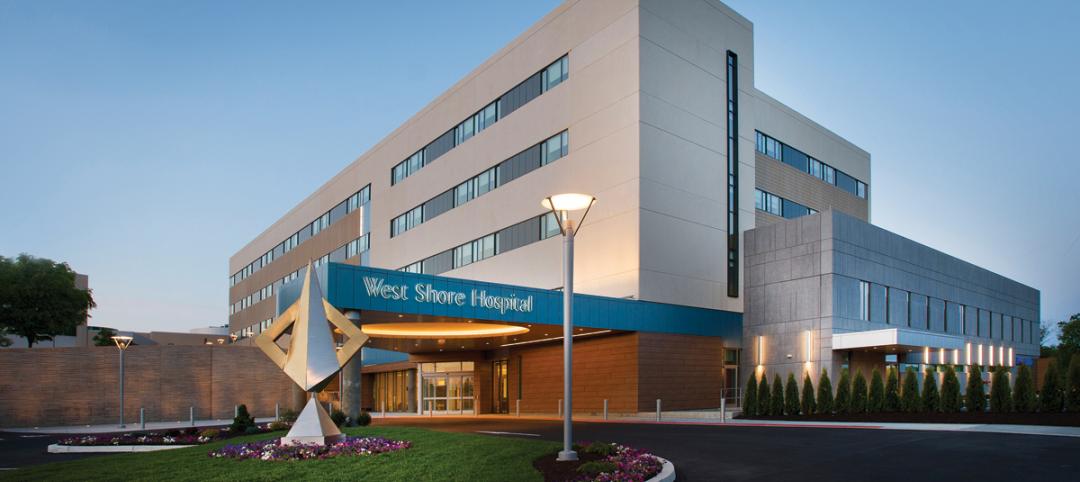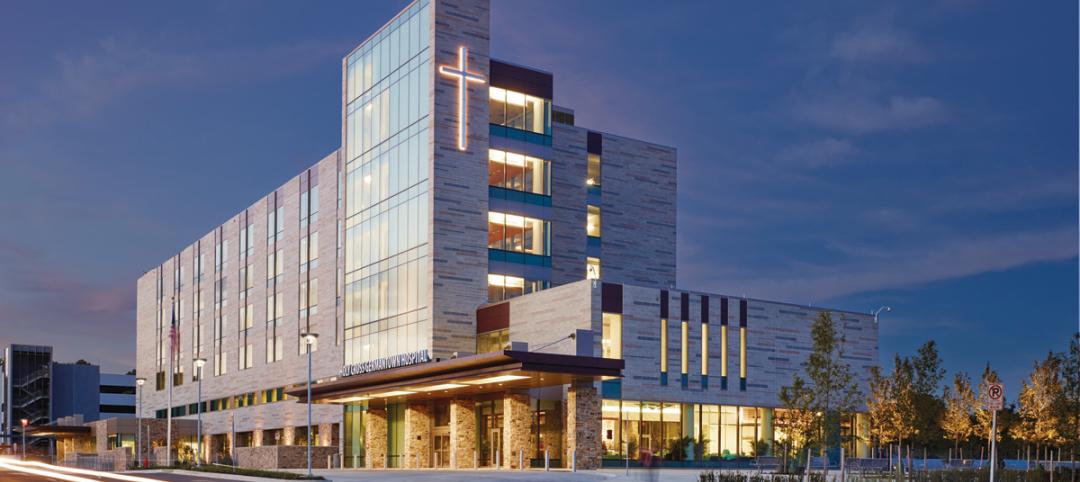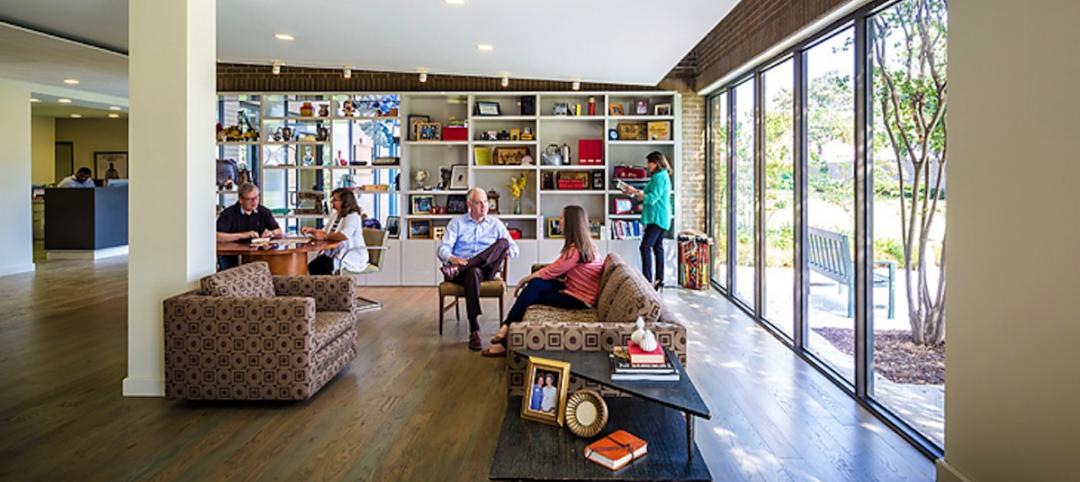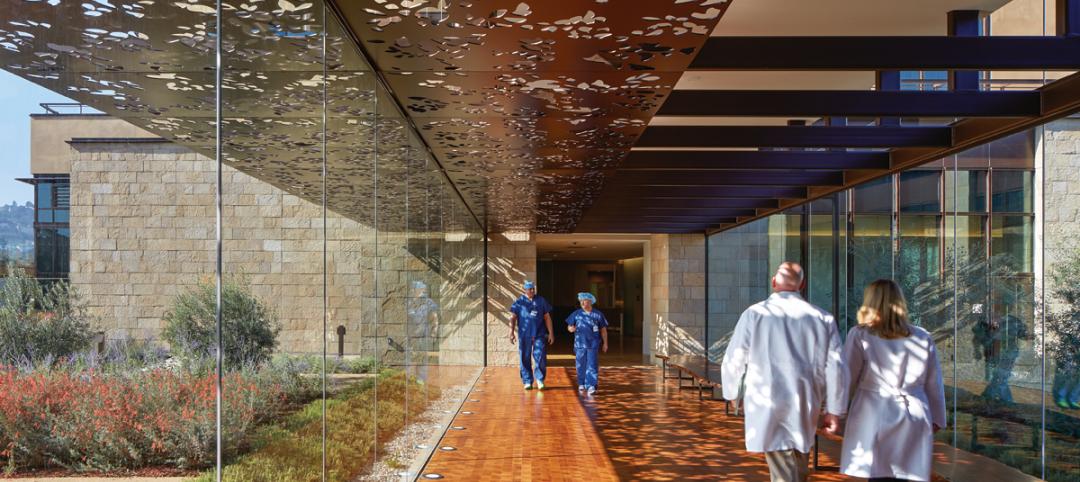The 1.2 million-sf shopping mall Rosedale Center in Roseville, Minn., yesterday disclosed its plans for a $100 million-plus expansion that will add a hotel, grocery, multifamily housing, fitness centers, restaurants, coworking spaces, more retail, and a medical office building.
Within the $400 billion global market for healthcare construction, two-fifths of all new retail transactions are for medical offices, compared to 2% a decade ago, according to recent AIA estimates. The number of medical centers in retail space—which Accenture put at 2,800 in 2017, compared to 351 in 2006—could nearly double by 2022, according to JLL projections.
As more developers, landowners, and retail strip owners look for ways to bring a medical facility to their properties, “nontraditional retail spaces for healthcare services are expected to continue to rise in popularity,” predicts JLL in its 2019 research report “Retail and the New Healthcare Consumer.”
Medical office buildings reflect the 'Amazon effect'
That medical offices are finding their way into empty retail space partly reflects the “Amazon effect” that has made online ordering a prevalent mode of shopping and has left bricks-and-mortar vacancies in its wake.
“Healthcare is seeking out locations that are convenient and accessible to their patients,” explains Steve Barry, president of Rendina Healthcare Real Estate, a developer based in Jupiter, Fla. “Retail often has great visibility, great access to traffic count, and plenty of parking.”
Rendina has been exploring this trend for a while now, he says. A few years ago, the firm developed a project for Hilton Head Regional Healthcare in South Carolina that placed a 60,000-sf outpatient facility inside a vacated Publix supermarket with a shopping mall.
Rendina is currently in the process of developing a project that will create an 80,000-sf healthcare facility within a regional shopping mall that Barry says is repositioning itself as a lifestyle center that includes entertainment and grocery venues. Barry couldn’t identify the location or client for this project, but says its construction should start next year.
Retrofitting a retail store for conversion to a medical office depends on the level of care being provided, which may have structural and air ventilation requirements, says Barry.
From a land-pricing and operational cost standpoint, moving healthcare into retail could actually be more expensive than, say, opening a stand-alone facility, because retail stores, says Barry, are generally in higher-density (and higher-rent) locations.
What’s more important, however, is attracting the right kinds of customers to these buildings. “Patients are exerting far more control over where they go for care,” he says.
Barry foresees this trend having some runway left. He expects to see new variations and models, too: for example, his firm is working on developing a hybrid urgent-emergency care facility under one roof, so that patients could access the appropriate care and be charged appropriately for it. Medical offices, says Barry, “would be part of this rehab mix.”
He believes that, despite technology advancements that allow patients to access care from their homes or phones, “healthcare in general will always have a need for space.”
Related Stories
Healthcare Facilities | May 27, 2015
Rochester, Minn., looks to escape Twin Cities’ shadow with $6.5 billion biotech development
The 20-year plan would also be a boon to Mayo Clinic, this city’s best-known address.
Healthcare Facilities | Apr 28, 2015
10 things about Ebola from Eagleson Institute's infectious disease colloquium
Research institutions know how to handle life-threatening, highly contagious diseases like Ebola in the lab, but how do we handle them in healthcare settings?
Green | Apr 22, 2015
AIA Committee on the Environment recognizes Top 10 Green Projects
Seattle's Bullitt Center and the University Center at The New School are among AIA's top 10 green buildings for 2015.
Building Team Awards | Apr 10, 2015
14 projects that push AEC teaming to the limits
From Lean construction to tri-party IPD to advanced BIM/VDC coordination, these 14 Building Teams demonstrate the power of collaboration in delivering award-winning buildings. These are the 2015 Building Team Award winners.
Building Team Awards | Apr 10, 2015
Prefab saves the day for Denver hospital
Mortenson Construction and its partners completed the 831,000-sf, $623 million Saint Joseph Hospital well before the January 1, 2015, deadline, thanks largely to their extensive use of offsite prefabrication.
Building Team Awards | Apr 10, 2015
Virtual collaboration helps complete a hospital in 24 months
PinnacleHealth needed a new hospital STAT! This team delivered it in two years, start to finish.
Building Team Awards | Apr 9, 2015
Big D’s billion-dollar baby: New Parkland Hospital Tops the Chart | BD+C
Dallas’s new $1.27 billion public hospital preserves an important civic anchor, Texas-style.
Building Team Awards | Apr 9, 2015
‘Prudent, not opulent’ sets the tone for this Catholic hospital
This Building Team stuck with a project for seven years to get a new hospital built for a faithful client.
Healthcare Facilities | Apr 8, 2015
Designing for behavioral health: Balancing privacy and safety
Gensler's Jamie Huffcut discusses mental health in the U.S. and how design can affect behavioral health.
Building Team Awards | Apr 5, 2015
‘Project first’ philosophy shows team’s commitment to a true IPD on the San Carlos Center
Skanska and NBBJ join forces with Sutter Health on a medical center project where all three parties share the risk.


